30 lessons from turning 30
A.K.A. It's less scary than you think
(20-25 min skim)
It was October of my third year at university and our flatmate’s birthday was coming up. And boy, did everybody in the flat know about it.
Contrary to what you’d expect, he wasn’t being a diva and dropping hints about how he wanted to be smothered with a pillow of attention. The reason we all knew our friend’s birthday was around the corner was because he was uncharacteristically deflated. Like a walking mood vacuum, he carried the air of someone with whom the Grim Reaper had personally locked eyes and silently mouthed “you’re next”.
Why, you may ask? He was turning the crumbling old age of 21.
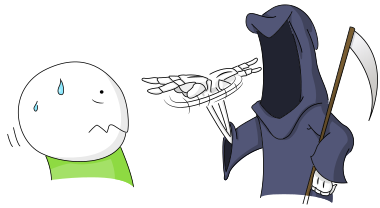
When he eventually opened up about it (my friend, not the Grim Reaper), he mournfully highlighted how 21 was basically your prime and everything from here on in was downhill. To him, this was supposedly the peak of his life and he found himself questioning how much he’d really achieved and whether he’d have any such opportunities any more. As much as the flat derived great joy at his expense… my mocking was only in part for cheap yucks. My more pressing motive was attempting to silence those very same fears. My jest was, in part, trying to convince myself that his statement was wrong. Laugh as I may, I secretly believed that it was not.
Considering so many athletes retire or get kicked off the pedestal before they are 30… was this really it? Were we hitting the point in our lives where, if we were going to have achieved anything great, it should have been by now? Were we now only just waking up on the train, having missed our stop 3 hours back?
Brains lose plasticity with age, that’s what we’re told. The body takes longer to recover. The disappointing conclusion drawn from this is that it’s therefore too late. You’ll see a (worryingly) large number of people dissuading anyone over the age of 18 to take up an instrument, or poor health being written off as just age. If you’re over the age of 20 and express an interest to keep learning, you risk being perceived as an eternal wannabe-student afraid of entering the, quote-unquote, “real world”. Heck, even when reading His Dark Materials at 13, I was left annoyed by the insinuation that adult dæmons don’t change their form because adulthood is when your traits “lock in". As if you hit adulthood and that’s it: You are now “you” for good.
Oh joy. This next decade was going to be a blast.
Fast-forward 8-9 years… I’m relieved to report that we were wrong. Very wrong. That the body loses its speed of growth doesn’t mean that you cannot still grow.
So, in a bit of an “up yours” to the sentiment that everything starts going downhill from 20, I nabbed 30 of the most interesting life lessons I picked up over the past decade to share. To anyone in their 20’s in the same position my friend and I were in… relax. You’ve got this.

1. There are many more important things than being cool
Like being grounded, diligent, reliable, consistent, driven…
The reason I call this one out specifically is that, as a teenager, I actively traded off many traits to try and play the cool game. I had to be someone I was not. I hoped that being cool would make me lovable, but my mistake was that trying to be cool meant I wasn’t focussing on the things that made me likeable.

2. No one actually knows what they’re doing
You know how, as a kid, you look up to adults and assume you’ll know what you’re doing when you’re an adult too?
Then adulthood happens and you feel like someone’s hidden the instruction manual on adulthood? That’s a pretty scary realisation.
You know what’s scarier? Realising that this is true of everybody else too. It’s very liberating though. If you find yourself confused and frustrated as to why so much advice seems contradictory and/or unhelpful… this is why. Take heart in the fact that you don’t need to know everything right now... you're among friends here.
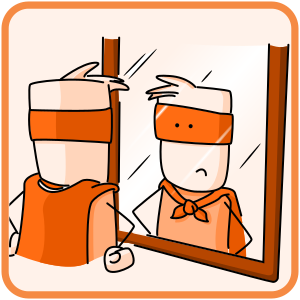
3. You are your best hero
Once you realise that everyone is, by-and-large, making things up as they go along, hero worship becomes fraught. As I got to hang out with the “cool” kids I was bemused to see that, behind the scenes, their lives were often a mess. As I looked up to skilled musicians, actors or writers, I was disappointed to see that they could still be assholes. Some of the most inspiring individuals I’ve come across turns out not to be the big or the famous… but my friends.
Now, this can leave you a little rudderless once you find that you have no one you can fully look up to. But that’s ok. At this point, the best hero to aspire to is simply a better version of yourself. Whilst you can certainly aspire to traits in others that you respect and admire, the best hero for you will probably be a better you.

4. Money can buy you happiness… sorta
Those who say “money cannot buy you happiness” have clearly never experienced the Steam game summer sale. Also, financial worries suck. No question. There’s a lot to be said for a nice pot of moolah.
But there’s a line.
What I think it comes down to is: Money is a tool more than an end in itself. The happiness that can be garnered from money comes from what it can enable you to do… rather than being the source of joy itself. In other words, going for money is great as long as it’s not pulverising the very things you hope you’ll be able to enjoy with it. If you’re burning your life and relationship to slog it at the job you hate because you think a six-figure salary makes you a somebody… You might as well be slashing your own tyres.
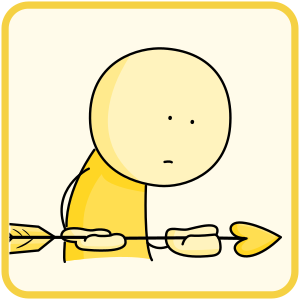
5. Asking someone out isn’t actually a big deal
Ok, this one really annoyed me. Almost every cartoon / show involving teenagers echoed the sentiment that asking people out is a big, dramatic event and - O. M. G. - getting rejected might as well be death. Given this, I grew up understandably petrified.
To be the Toto to pull the curtain away from the big scary puff of smoke saying “FAILURE IN GETTING THAT DATE IS DEATH” and reveal the old man trying to scare you... Asking someone out is like asking your buddy to hang out; it is underwhelmingly straightforward. Part of why I think it is overcomplicated is the fear the other person will recoil in disgust and challenge (or even mock) you for thinking that you think you had a chance with them. But here’s the scoop: You don’t need to assume you will be a great match to ask someone out. All you’re doing is finding out if you are. If the answer is ‘no’, you have your answer. If you approach with the swagger that you’re a great match, I can understand the desire to pop the bubble. But if you’re simply interested and are wondering if the other person is too… you’d have to be quite the asshole to hold that against someone.
So if they say no, simply leave the cards where they lie. Don’t try and one-up them, don’t try and save face and don’t go demanding they justify themselves. It’s like ripping off a plaster. Might it sting? Sure. But once it’s off it’s off. Just leave them alone and lick your wounds. You’ll be fine.

6. What it means to “be yourself”
Alright, hands up if you’ve ever received “just be yourself” as some kind of catch-all golden rule for life. Keep ‘em up if you also found this to be about as helpful as granite swim shorts1.
If you are like me: Part of the problem was that my gut response would “that’s all fair and well, but which part of myself should I be!? The part that likes monster trucks? The part that's patient? The part that eats their bellybutton lint in public?”. Whilst I could be “me”, I could obviously still be a much better version of “me”. So where was the line?
Here it is: Instead of going into situations thinking “how can I make someone like me?” – Approach with the angle of “Let’s find out if they do”. Whilst you can certainly work on how you present yourself, never insincerely pretend to value or believe in things that you do not.
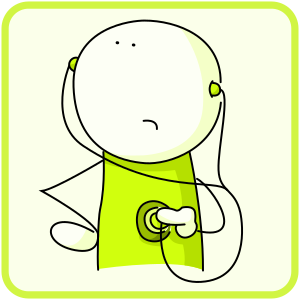
7. Only you can look after you
Considering how often we hear people encourage everyone to be nicer and look out for each other’s wellbeing… it’s easy to feel resentful at the world when this most definitely does not happen.
This is unfair to the world, however. There’s only one person who gets detailed first-hand experience of your mood… and that’s you. Everybody else has to make guesses based upon what you tell them and how they perceive you. In other words: The rest of the world has a considerable handicap in being able to detect what you require. As such, they will almost certainly get it wrong.

8. Nothing can substitute sleep
“There was that politician who only got by with 4 hours sleep, so can I!”
Like a couple of people I know, I went through a phase of viewing sleep as a time-sink and an obstacle. Like those same people, I also completely and utterly failed when I tried to cut it back.
I’ve seen repeatedly that if you wreck your sleep, there’s not much you can do about it. Whilst caffeine or sugar can sort of give you an edge… you can never completely mask the damage to your concentration or mood. Being able to function without sleep doesn’t mean you can thrive without it. More often than not, it creates a vicious cycle of dead time where you are too tired to do anything useful.

9. Your body has limits
Whilst we’re often encouraged to push past our limits… there’s a caveat: Your body has limits for reason. Repeatedly pushing past risks burnout, injury or loss of interest.
The advice that often doesn’t accompany limit-breaking (but should) is that you also need sufficient time within your limits to recoup properly, in order to make such excellence sustainable.

10. The little things add up
Imagine if you heard me bellyache “I used to be able to spend money like it was nothing, but now that I’m in debt, I cannot”. Is debt the cause of the problem here, or the chain of reckless spending?
Laugh as we may, many people speak of their bodies like this. I’ve repeatedly heard “Oh, I used to play badminton all the time. But then I hit 30, had kids, stopped doing sports and I now can’t keep off the fat” lamented as the person was, once again, the first to reach their hand into the doughnut box at work. They knowingly warn me I’ll be in the same boat once I hit 30.
Yes, turning 30 definitely that did that to you.
The fact that you could do something for a number of years in your teens doesn’t make it sustainable over the next several decades.

11. Life is too short for mediocrity
I find myself using this phrase a lot, in part to encourage myself to play more computer games.
Yes, you read that correctly.
The whole point of recreation is to restore and refresh yourself. If it’s not doing that… then why keep doing it? It’s dangerously easy to fill your free time with obligations or compulsive behaviours, none of which do much to keep you buoyant. Resting efficiently is just as important as working efficiently.

12. Worship is overrated
As a teenager I believed worship to be the highest form of affection. Someone liking you was not as secure or as meaningful as them needing you. I now believe I was wrong.
The problem with worship is that it comes from a place of helplessness, not strength. Once the initial flattery wears off, you can never really know if you are genuinely liked or whether the other person simply feels they have no other choice.
Ironically, the more underrated acceptance provides a better answer. Another person is grounded and has options, and yet still wants you in their life. Not because they need it that way, but because they want it to be. For some strange reason, my younger self never saw how powerful this was.

13. Many fights are not worth fighting
Superheroes fight injustice wherever they find it. Superheroes also did not have the internet.
One of the quandaries I grappled with for a while was: “If something upsets me and seems wrong, should I call it out?” At the time, the principled approach seemed to be “yes”. Whilst it sounds heroic; it is exhausting, often pointless (as arguments tend to solidify stances more than change them) and makes you a bit of an asshole. There’s a more important consideration here: Believing that you are right does not entitle you to tell other people that they are wrong.

14. Everyone has baggage
By the time we hit adulthood, most of the people we meet will have had many formative experiences. And by this time, a fair few of these experiences will likely to have sucked too.
There may be strange quirks or traits in other people that seem completely alien to us. Or maybe one day their behaviour is weirdly “off”. There’s often a story... they may just not know you well enough to share it or have learned that most people wouldn’t want to be burdened by it. Don’t fall into the trap of taking it too personally, however. It often isn’t. It’s easy to think that just because the people around you only talk about trite like their kids, work or the weather, that that is also all they have going on in their lives. This is especially easy if you are going through crap of your own and are too irritated by other people not noticing, for you to notice theirs. So don’t read into these too much.

15. We are dumb
Reading up on psychology is both fascinating and utterly soul-destroying. As a teenager I fervently assumed that we were intrinsically rational and that everything had a meaningful explanation to it. I scoffed at behavioural psychology’s insinuation of stimulus-response.
Hoooooo boy I was in for a shock.

16. Identities are made to be broken
University shook my sense of “self” to its core. I walked in with a bunch of identities I had acquired from school (some good, many not-so-good) and had them broken as I finally found myself able to ask myself “who did I want to be?”
I tried on many masks but ultimately found myself lost. I aligned myself to various social groups and styles but was left cold by how they acted or what they stood for. It took many years until I realised that the solitude of not really having an identity was… actually quite nice. With no pretence of how I should act or the façade I should maintain, I was free to pick-and-choose traits and ideas from wherever I found them. It felt like black magic to find that I could enjoy my nerdy computer games but still work on my social and presentation skills. It felt wrong to be able to straddle both.
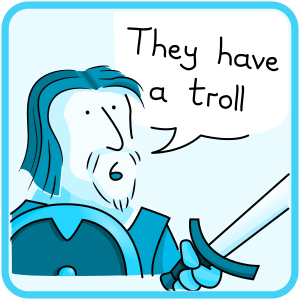
17. Haters are not an excuse to be a jerk
“Haters gonna hate” has a lot of merit to it. No matter how much you try and stay out of people’s way, there will always be those who take issue with you for little-to-no reason.
However, this isn’t an excuse to purposefully take shots at people either. The fact that some people will groundlessly attack you doesn’t mean that there is no merit in considering what you say (or how) and if there are less problematic ways to say it.

18. Being nice sucks
I have nothing against being a decent human being. The problem, however, with being nice is that it tends to be accompanied by a very unhelpful trait: Lack of boundaries.
I was one of them… A “nice guy”. Here’s the trap: If you identify or pride yourself on “being nice” then you set yourself up for many situations where you may placate, invite or outright encourage crappy behaviour in a bid to uphold your “nice” image. A lack of boundaries doesn’t make you conscientious, it makes you a target.

19. Fixing things is better than perfection
This was a wonderful bit of dating advice I received from my friend: “How you fix a mistake is more important than never making one in the first place”. The makings of a good partner wasn’t to never screw up (you will), but on how you responded to it. It turned out this advice went beyond dating.
The reason this struck a chord was that I’d grown up with the idea that you either did something well or failed at it. If your drawing starts going wrong, you’ve had it. If a date hits a bump, it’s over. What I didn’t realise that if you hit a snag then figure out how to fix it, your knowledge and skill for that thing suddenly explodes. Why? Being able to identify a problem, where it came from and how to fix it actually cultivates a huge amount of intricate understanding that just perfecting it would never otherwise reveal to you.

20. You are right about your preferences
For years, I had little interest in holidays abroad as they were stupidly expensive and I never found hotels or architecture to be as exciting as my favourite chair and the Playstation. That’s not to say that I didn’t think other people could enjoy holidays abroad… I was just pretty sure that I wouldn’t. I was repeatedly assured that I was wrong.
Ten years, several holidays later and the votes are in… I wasn’t.
This shouldn’t come as a surprise. If there are things that you do and don’t like… you’re probably right about the fact that you do or don’t like them. Whilst this may sound eye wateringly obvious, you will have this repeatedly challenged, often in the tritest of things that aren’t even anybody else’s business. Some people are only happy when everyone around them copies their life choices… and anybody not doing so is, disappointingly, regarded as an affront. It happens.

21. Burn bridges gracefully
At the point you become self-assured and realise that you don’t need to be friends with assholes, it can be tempting to be, shall we say, “outspoken” to those you perceive as such; especially as popular culture has many lauded figures who basically run their mouth.
There is still, however, much merit in diplomacy – beyond needing a good reference and Parthian shots looking childish. People you may initially perceive as belligerent or unpleasant can sometimes be amazing people. Frustrating workplaces can just muddy the waters on who are the goodies and the baddies. Sometimes they’re still assholes. But I will also say that there are many scenarios where I’m grateful that I held my tongue, as I later realised that the other person was actually the one with their head on straight.
Don’t get me wrong, you can (and should) still burn bridges… Just not when you’re running over them.
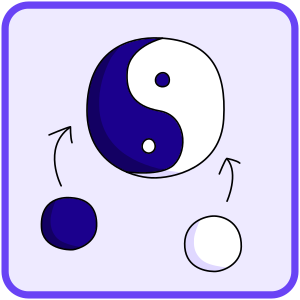
22. Compromise is the root of teamwork
Let’s say I could create the most powerful jet engine and you the most aerodynamic wing possible2. Ultimate dream team? Well, if the weight of the engine buckles the wings, both strengths are now worse off. To play to our strengths, we would ironically need to cede some of our strength to accommodate the other.
This is teamwork. People can bring their own strengths to the table but, unless they fuse well, will normally make the team worse. The trick, I believe, is shared values… or to go by its less-attractive name: “compromise”. Some of the most efficient teams I’ve seen are happy to forego what they believe is the most efficient route in order to create and honour a shared approach… which ironically becomes the most efficient route.

23. Incompetence may be ignorance
“Never attribute to malice that which is adequately explained by stupidity”. This lovely phrase, known as Hanlon’s Razor, generally means “don’t read into things too much. What you may perceive as a calculated attack may just be a blunder”.
It doesn’t always end there either. What we see as incompetence can also sometimes simply be ignorance. Less of idiocy, the other person may simply not know that there’s a better way of doing something. If they’ve never been introduced to the possibility, how would they know to look for it?

24. Look for similarities
I started my job in London with an optimistic ideal: I wasn’t going to be one of those stuffy, grumpy commuters. Surprisingly, it lasted a couple of years. The problem is, as an adult, you really don’t have to look far to hate the world. Whether watercooler talk, the news or social media… you are practically force-fed opportunities to repeatedly look down upon and judge others. Though it has its advantages in smaller doses, the ease of ammunition can create a much heavier imbalance of frustrating stories to positive ones. This can be incredibly exhausting and can create lopsided, alienated views of the world.
The remedy is to go out of your way to look for similarities and strengths. Things to counterbalance the weighty mass of reasons to hate people. The reason this can be tricky is because you’ll quickly discover that people with their lives in order don’t often bring attention to it… whereas those who don’t most definitely will.
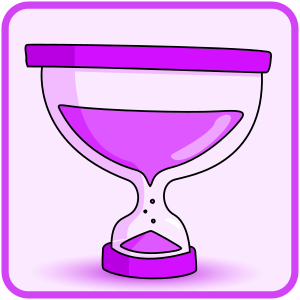
25. Nearly everything takes longer than you think it will
“I’ll just apply for these 2 jobs and call it a day. Finishing by 1pm would be ideal, but 2pm is probably more realistic.”
Next time I look up, it’s 5pm. This is nothing new.
If you’re doing anything which requires a degree of creativity, especially if you are trying to do it well, it will probably take at least twice as long as you expect it to, and that’s being generous. This has little to do with the oft lambasted trait of procrastination. It’s easy to fall into the trap of thinking “but I used to do 6 lessons a day at school” and completely overlook the fact that most of your tasks now are considerably more involved and have less prepared upfront for you. As my old boss used to say: “It takes time to saddle a horse”. So stop beating yourself up.
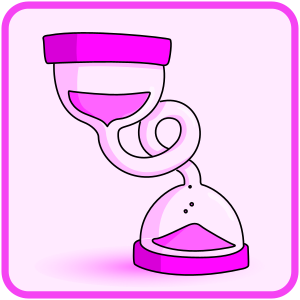
26. Nearly everything is also more complicated than you think it is
When an individual who barely struggles to use e-mail dictates to you how easy it should be to program a new feature… you quickly learn that, if you don’t understand a particular skillset but believe that a process should be straightforward, you are probably wrong.

27. If you need your life choices validated, they are probably bad life choices
It took me a long time to notice that the friends who were living fulfilling lives cared not for whether I thought that their choices were amazing or not.

28. You don’t need a passion…
I used to believe that, to be a somebody, I needed to have a passion in my life. Something to stand for. Confused when few were blown away by my “passion”, I rationalised it away as it not being daring or grandiose enough.
It only clicked how this looked when I saw someone else use it in conversion. I was on a group outing with my wife and one of the gents proudly asked her “so what’s your passion?” – which I was pretty sure he got off the internet as a conversation starter to make you stand out from every other sucker... Just like I did. My wife’s response was to tilt her head with bewilderment and shrug.
Here’s the naughty secret: Having a passion only impresses those who play the same game. Only those who also believe that having a passion is the key to life will actually find such a thing inspiring (and even then will often be too busy trying to one-up your passion or drink from it). To the rest of the world? It actually looks pretty self-indulgent.
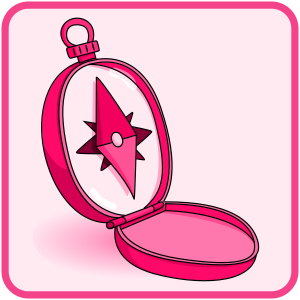
29. … but you do need a direction
However, what I found is relatively important, and often confused with “a passion”, is to have a direction.
This doesn’t need to be anything magnanimous, ground-breaking or life changing. It doesn’t mean every breath of your life needs to align to this purpose. All it means is roughly knowing what you want to get out of life and making meaningful steps in that vague direction.
Or, in easier terms: Not making your life a chain of compulsive behaviours and then loudly complaining to others how your life isn’t where you want it to be.
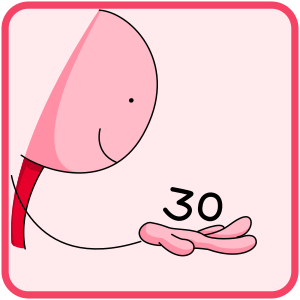
30. Turning 30 is no big deal
Despite being called “the big three zero”… turning 30 was no different to turning 29, 25 or 20. I welcome this greatly. The reason for this is that, once you hit adulthood, the milestones of your life stop being defined by an arbitrary number but more by what you do with your time. Reaching 15 is a big deal because you can see boobs at the cinema (if you’re lucky). Reaching 18 is a big deal because you can drink alcohol. After that though, the timelines are yours. There’s no time-lock on finding love, finding what you love or finding contentment with what you do. In many respects, that is what makes adulthood arduous, confusing and brilliant.
The real shame is that many who are scared of growing up will allay their fears by tapping into their younger years through acts of impulsive recklessness. What they leave untapped, however, is their youthful curiosity and interest in finding out more. I’m probably in the minority here, but I’m more in awe at a 30 year old who picks up a paintbrush or musical instrument for the first time than one who attempts to drink me under the table for the umpteenth time. But that’s just me.
I find myself caring less for the big numerical milestones, but more, in the words of Julian Casablancas on his song Left & Right in the Dark:
“How you’re spending your day, is the same as your life”
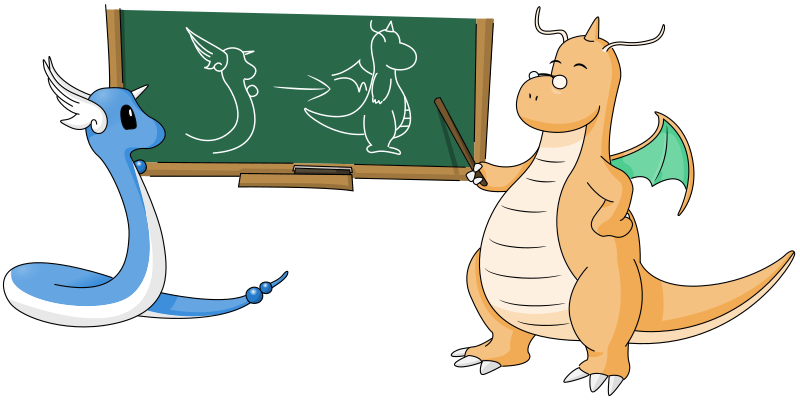


 Squid and Whimsy
Squid and Whimsy

